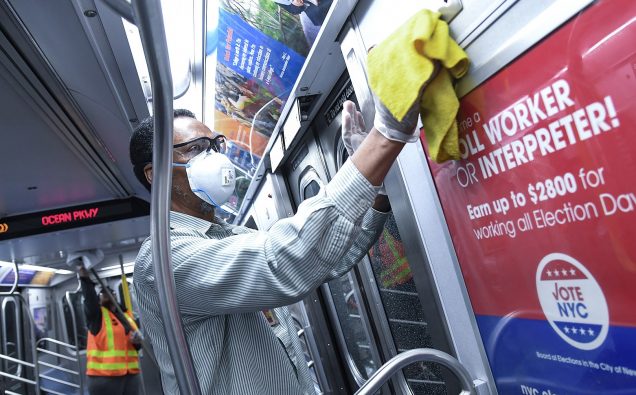
A new report has documented what was known commonly – many countries wasted time in taking preventive measures to keep the coronavirus pandemic from spreading globally.
In its study, the Independent Panel for Pandemic Preparedness and Response also warns that the world is currently not ready to prevent another pathogen from reaching pandemic levels in the future.
The World Health Organization, for example, the study says, should have declared a public health emergency sooner, while countries took too long to implement measures to curb the virus’s spread.
Regarding efforts to contain the pandemic, the panel asks rich countries to donate at least one billion vaccine doses to COVAX by September and emphasized the importance of agreeing on voluntary licensing and transfer of vaccine technology to increase global supply.
“Our message is simple and clear: the current system failed to protect us from the COVID-19 pandemic. And if we do not act to change it now, it will not protect us from the next pandemic threat, which could happen at any time,” stated Panel Co-Chair and former Liberian President Ellen Johnson Sirleaf.
WHO Director-General Tedros Adhanom Ghebreyesus launched the report which the panel based on its findings and recommendations after an eight-month review of lessons learned from the past year.
“The tools are available to put an end to the severe illnesses, deaths, and socio-economic damage caused by COVID-19”, said panel co-chair Helen Clark, former Prime Minister of New Zealand, insisting that leaders “have no choice but to act” to stop such a catastrophe happening again.
“The current system – at both national and international levels – was not adequate to protect people from COVID-19. The time it took from the reporting of a cluster of cases of pneumonia of unknown origin in mid-late December 2019 to a Public Health Emergency of International Concern being declared, was too long,” the panel said in a statement on its report, COVID-19: Make it the Last Pandemic.
Trickle down vaccination is not an effective strategy for fighting a deadly respiratory virus. #COVID19 has already cost more than 3.3 million lives and we’re on track for the second year of this pandemic to be far more deadly than the first. #ACTogether for #VaccinEquity now!
— Tedros Adhanom Ghebreyesus (@DrTedros) May 14, 2021
The panel – whose report contains “the authoritative chronology of what happened” – also insisted that February 2020 was “a lost month”.
This was because “many more countries” could have done more to contain the spread of the new coronavirus after the WHO declared a public health emergency of international concern on 30 January, after the initial outbreak in Wuhan, China.
“The shelves of storage rooms in the UN and national capitals are full of reports and reviews of previous health crises. Had their warnings been heeded, we would have avoided the catastrophe we are in today. This time must be different,” said Johnson Sirleaf.
Quicker action “would have helped to prevent the global health, social, and economic catastrophe that continues its grip”, the panel noted, adding that “the system as it stands now is clearly unfit to prevent another novel and highly infectious pathogen, which could emerge at any time, from developing into a pandemic”.
Among its recommendations – and after highlighting how the coronavirus crisis continues to devastate communities – the panel urged Heads of State to take the lead in supporting proven public health measures to curb the pandemic and implement reforms “to prevent a future outbreak” from spreading globally.
Following 8 months of intensive work to understand how and why #COVID-19 became a pandemic, @TheIndPanel is ready to release its findings and recommendations.
Here are our recommendations for making this the #LastPandemic via YouTube livestream: https://t.co/o8BS9jEWMp
— The Independent Panel (@TheIndPanel) May 12, 2021
The panel also advised high-income countries with adequate vaccine supply to commit to providing “at least one billion” doses to the 92 low and middle-income countries in the UN-led equitable vaccine scheme, COVAX, by September 2021.
Major vaccine-producing countries and manufacturers should agree to share intellectual property rights on their jabs, it said, guided by the UN health agency and the World Trade Organization (WTO).
“If actions on this don’t occur within three months, a waiver of intellectual property rights under the Agreement on Trade-Related Aspects of Intellectual Property Rights should come into force immediately”, the panel insisted.
Turning to the world’s wealthiest countries, known as the G7, the panel of leading experts recommended that they should “immediately” stump up 60 percent of the $19 billion required for the Access to COVID-19 Tools Accelerator for vaccines, diagnostics, therapeutics, and strengthening of health systems


















